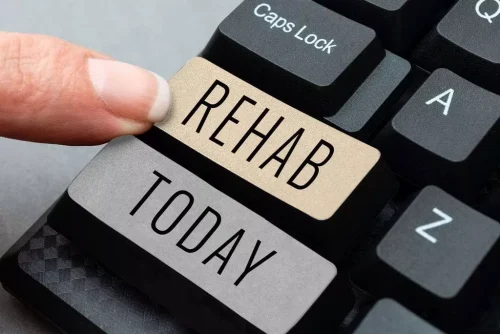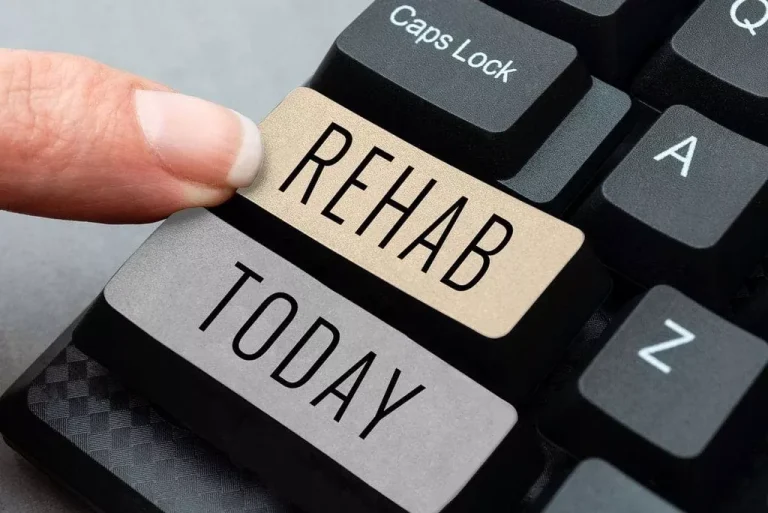How to Quit Drinking, for Now or Forever

The Recovery Village Atlanta offers comprehensive addiction treatment for drug and alcohol addictions and co-occurring mental health conditions. Beyond the safety how to stop drinking considerations, medical detox is a more comfortable, pleasant experience. Your healthcare team will help treat each symptom as soon as it develops and equip you for success. This can help you avoid much of the unpleasantness that can occur as withdrawal symptoms develop. If physical symptoms last beyond seven days, they will generally be over sometime in the middle of week two. After the intense physical strain of withdrawal, people will often be fatigued.
إذن، في هذا المقال سنتطرق إلى:
Need more alcohol support?
Non-physical symptoms, like cravings and desire for the comfort alcohol provides, may become more noticeable as the distraction of physical symptoms subsides. Affirming intentions, knowing the reasons for quitting alcohol, and setting up the environment for success are important strategies. Designing a supportive environment may require removing items or people from someone’s life. Removing triggers helps support the goal of stopping drinking. Once urges and cravings are well-managed, a person may consider reconnecting with certain individuals. You might turn to friends, family, and loved ones for this type of support, but this can be challenging if your past alcohol use has alienated people in your life.
Benefits of cutting down
You’ll feel more present and genuine in social contexts without relying on alcohol. Plus, as you see improvements in your health and well-being, your self-esteem naturally grows, empowering you to tackle challenges with confidence. People attempting to quit may turn to drinking again to prevent withdrawal symptoms. Talk to a medical professional if you have any concerns about tapering off alcohol. They can provide recommendations to help you avoid harmful side effects.

What Are the Treatments for Alcohol Use Disorder?
- If you feel comfortable doing so, discuss your challenges with your primary healthcare professional.
- How can I build a support system to help me achieve my sobriety goals?
- Even after years of heavy alcohol use, the liver has a remarkable regenerative capacity1 and, following alcohol removal, can recover a significant portion of its original mass and function.
- By creating specific, achievable targets, you can chart a course toward reduced consumption and improved well-being.
Setting a goal to stop drinking alcohol requires a person to be aware of their reasons for this behavioral change. Some people with a long history of alcohol misuse may start to experience seizures, which peak around 10 hours then taper off and subside entirely within 2 or 3 days. Recovery can take a long time, so you may need ongoing treatment.
- But when you stop drinking and your moods stabilize, you’re able to be more present and emotionally available.
- Alcoholics Anonymous cautions its members not to get too hungry, angry, lonely or tired—all of which can make you more vulnerable to the urge to drink.
- SELF does not provide medical advice, diagnosis, or treatment.
- Quitting the drink can help prevent future health complications too.
Renewal Center for Ongoing Recovery
It can also be difficult if the people in your immediate social circle continue to drink or if they don’t support your plans to quit. Late symptoms begin between two and four days after the last drink, and they usually include changes in heart rate, breathing and blood pressure. Serious symptoms caused by delirium tremens include hallucination and seizure.
There may be many reasons why a person plans to stop drinking alcohol. However, it may be more challenging for people who live with alcohol use disorder (AUD) than someone who casually drinks. In the past year, around 10.6% of people in the United States, ages 12 and older, had AUD. If you think you might have an alcohol use disorder, there are evidence-based treatment options that can help you to quit drinking. Learning about your options can help you decide what might work best for you.

Alcohol support services
If that’s not possible, admit your desire to drink and don’t judge yourself for it. Call or text a friend and have your goals handy to remind yourself why you’ve dropped drinking. Like any big change, there might be times where it doesn’t feel easy, so it’s important to reward yourself with something as you make progress. It’s equally important not to be too hard on yourself if you slip up every once in a while.
Long-term benefits:

Embarking on the journey to reduce alcohol consumption is a courageous step, and having a solid support system can make all the difference. Engaging friends, family, and professionals not only provides encouragement but also accountability and guidance. At The Recovery Village Atlanta, we are committed to helping people like you or your loved one recover completely from alcohol addiction as safely and comfortably as possible. We aim to help you stop using alcohol and empower you to maintain lifelong sobriety.Quitting alcohol may seem daunting; however, you can do it! You don’t have to take this journey alone; we are here to help you through each step of the way.
Quitting alcohol can help reduce the depression and anxiety that alcohol can bring and significantly improve your situation in life, increasing your overall happiness. It can make your family and friends feel as if you are choosing an addiction over them and cause you to act in ways that are destructive to relationships. The effects of alcohol can even make you abusive or cause you to harm others emotionally. The dehydrating effect of alcohol affects your skin and your hair significantly.
Ready to make a change?
Anyone stopping alcohol should discuss their plan with a doctor and seriously consider undergoing a medically-supervised detox. Medical detox ensures you will be as safe as possible by providing 24/7 monitoring that helps recognize and treat complications effectively and as rapidly as possible. When you constantly have some alcohol in your bloodstream, you will not think as clearly. Many people who use alcohol heavily for a prolonged period often don’t even recognize the perpetual fog that alcohol creates. When you stop drinking, it can feel like entering a whole new world and like a fog that you didn’t even know was there has suddenly lifted. By week three, you will have saved about $450–$600 from not buying alcohol.
